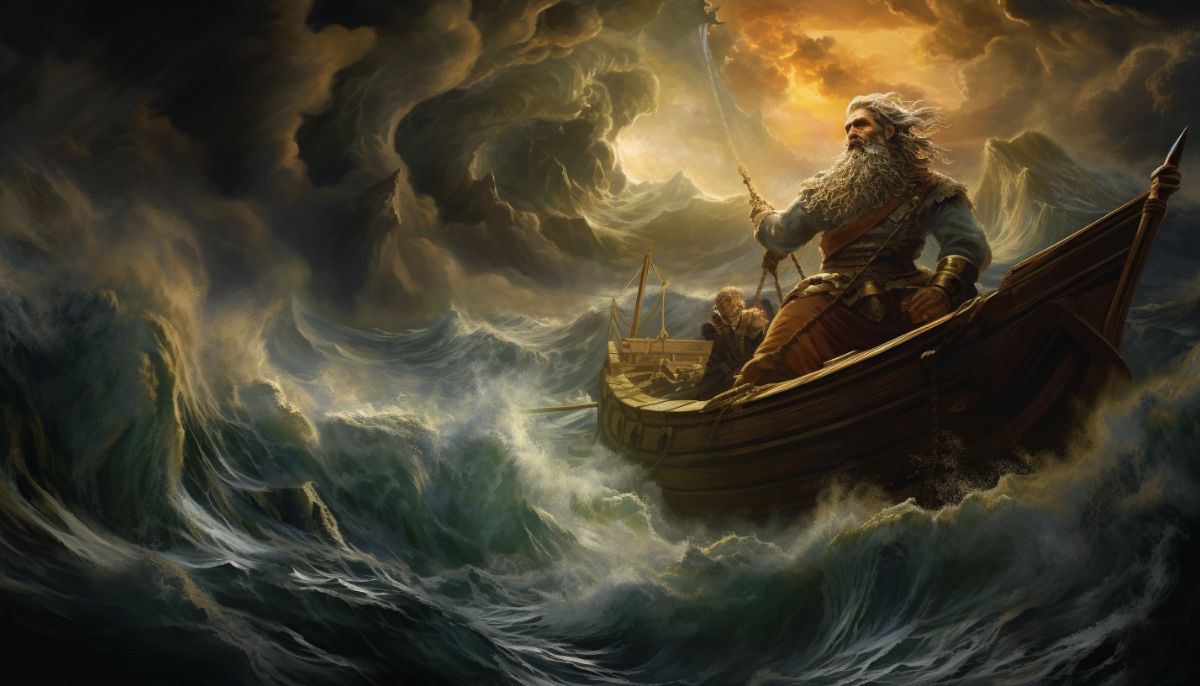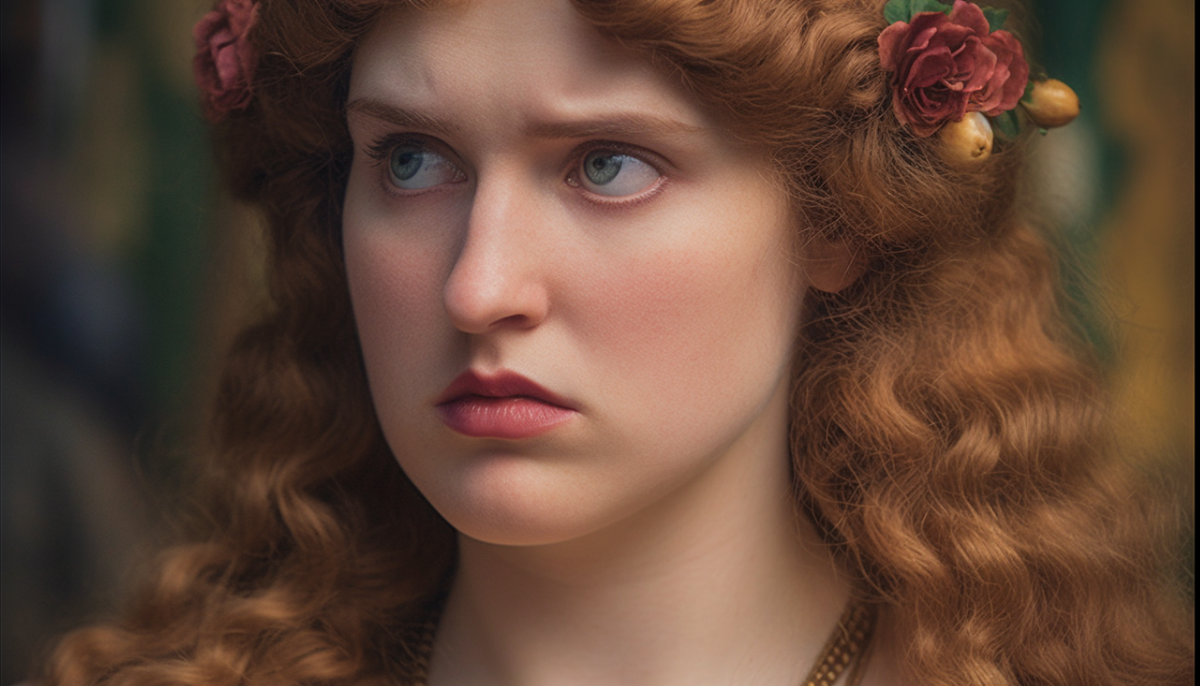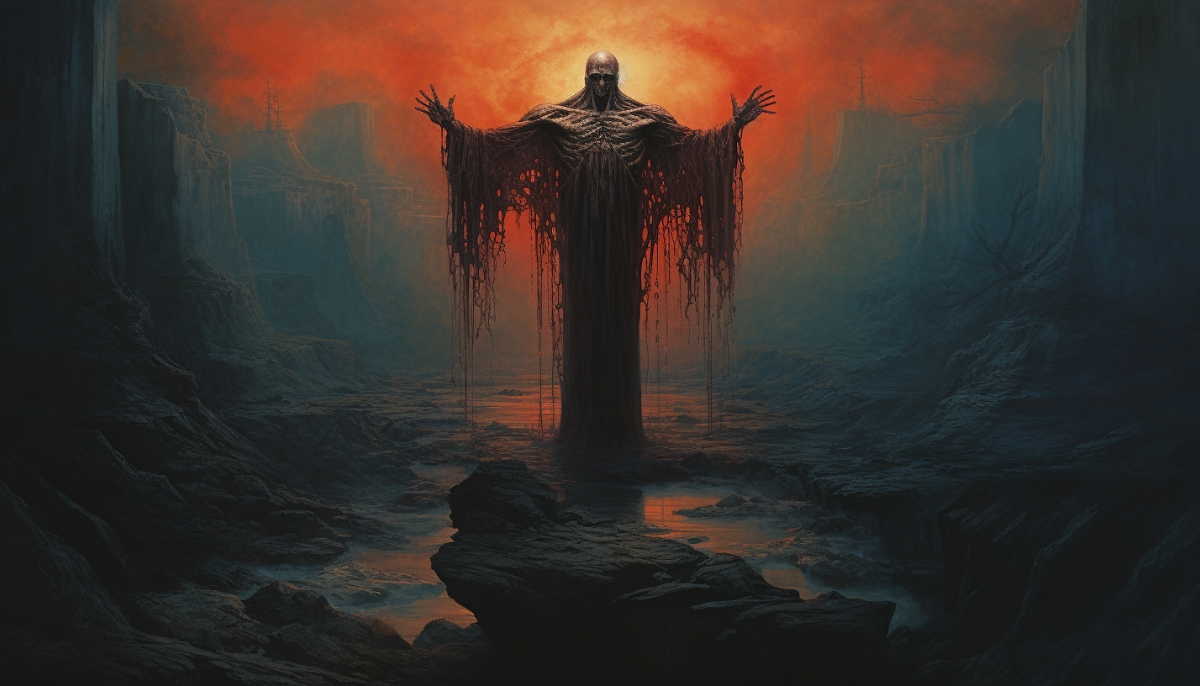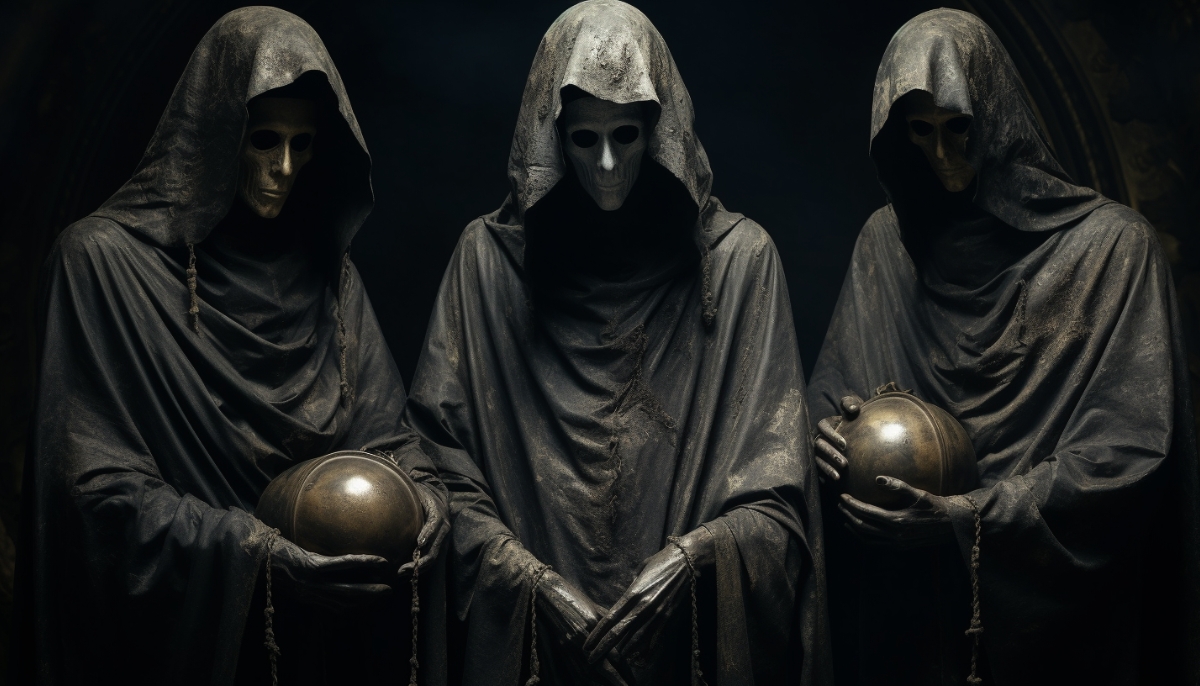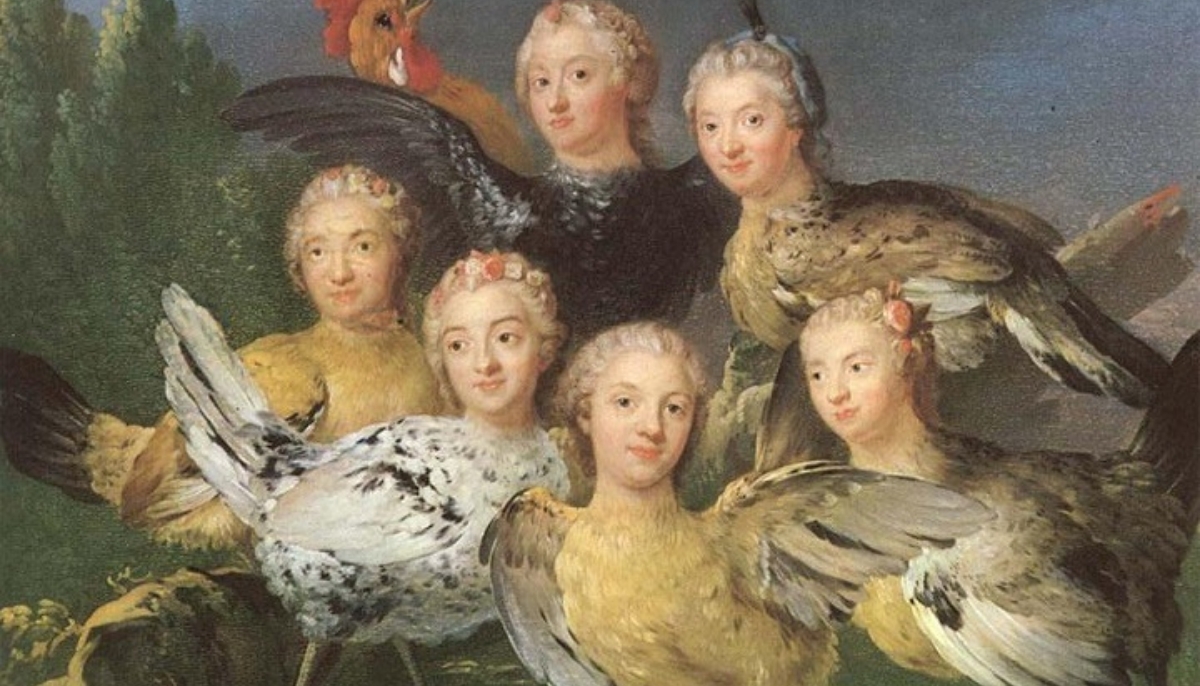Embark on an exhilarating journey into the heart of Greek mythology, where tales of gods, heroes, and timeless adventures await adult readers.
Beyond their epic scope, these sagas possess a profound historical significance, shaping the very foundation of Western literature and thought.
Join us as we navigate the labyrinth of myths, guided by the wisdom of the ages, and explore the best mythology stories for adults that the Greek sagas offer.
This article is one in a series on the best Greek mythology books.
What are the Greek sagas?
Greek sagas are the narratives that form the heart of ancient Greek mythology, offering a window into the lives of gods, mortals, and heroic figures.
These tales convey profound insights into the human experience, the interplay between the divine and the earthly, and the intricate web of fate that binds them together.
Whether recounting the feats of mighty heroes or the whims of capricious gods, these sagas encapsulate the essence of Greek mythology.
How do we know about the Greek sagas?
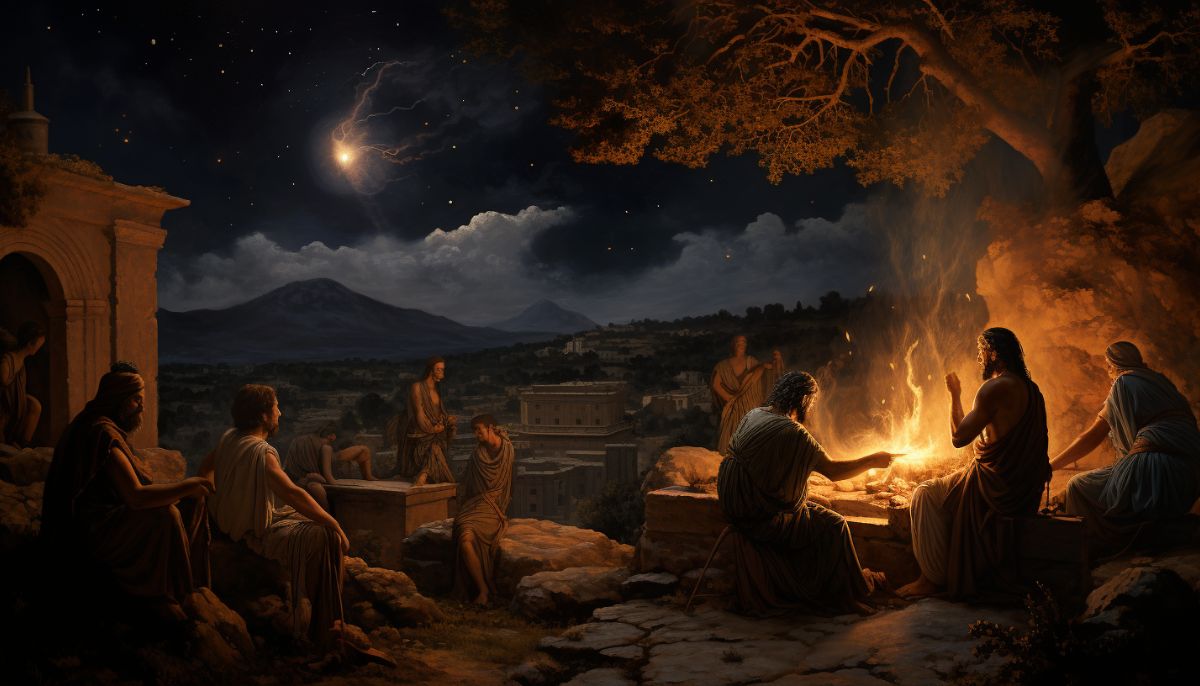
The preservation of Greek sagas has been a journey spanning centuries. Originally passed down through oral tradition, these stories found their enduring form in the works of ancient authors like Homer and Hesiod.
These tales were crystallized into written texts through poets and writers, ensuring their passage from generation to generation. Their early transcriptions paved the way for their continued significance into the modern day.
Top Greek Mythology Stories for Adults to Read
Let’s explore the best Greek sagas, perfect for adult readers. These stories offer a glimpse into history and are famous for their rich themes reflecting human complexity.
The Iliad, Homer
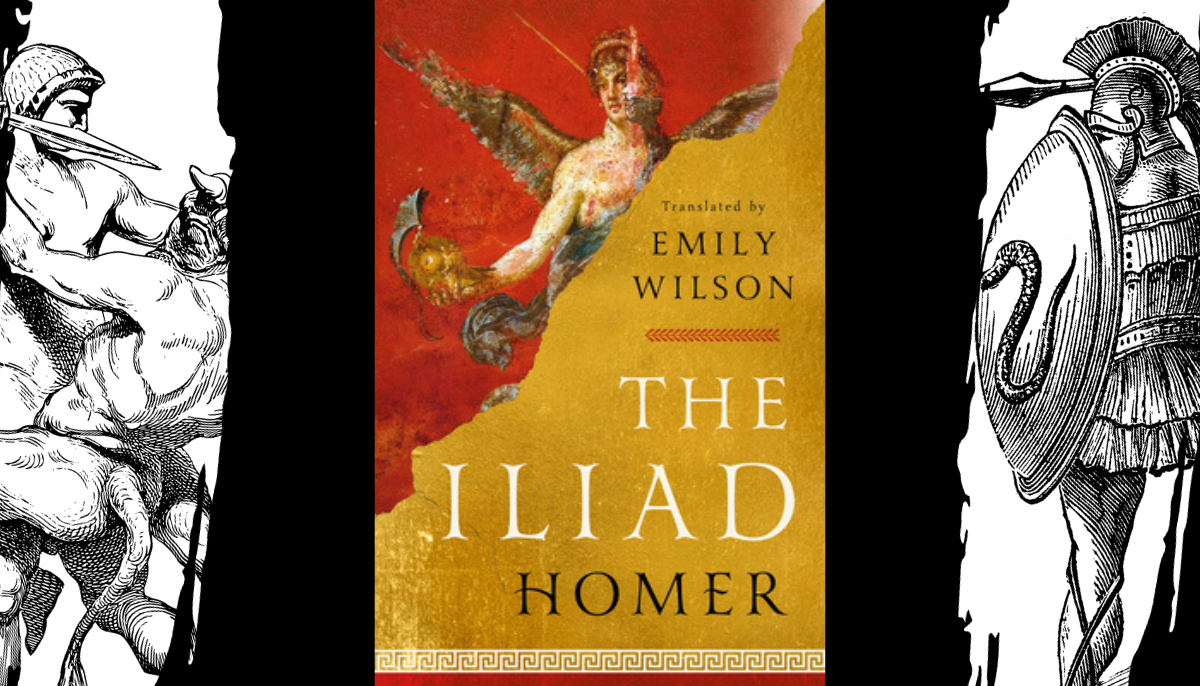
At the heart of Greek mythology lies the Iliad, Homer’s monumental epic that beckons adult readers to immerse themselves in the clash of gods, warriors, and passions on the battlefield of Troy. This saga vividly recounts the Trojan War’s tumultuous events, intricately weaving together themes of honor, pride, wrath, and the fragility of human existence.
The Iliad holds an appeal for adults due to its unflinching exploration of the complexities of war and the human psyche. The heroic battles are interwoven with moments of vulnerability, showcasing the emotional depths of warriors and the tangled web of gods’ influences.
Through the lens of this ancient conflict, readers are confronted with timeless questions about the cost of glory, the value of life, and the pursuit of individual purpose in the face of destiny.
Despite its historical significance, the Iliad is a smooth read for adults. Homer’s poetry vividly brings to life the realities of war and deep philosophical questions. Its rich language and insights into heroism and human frailty make it an engaging and thought-provoking experience.
The Odyssey, Homer
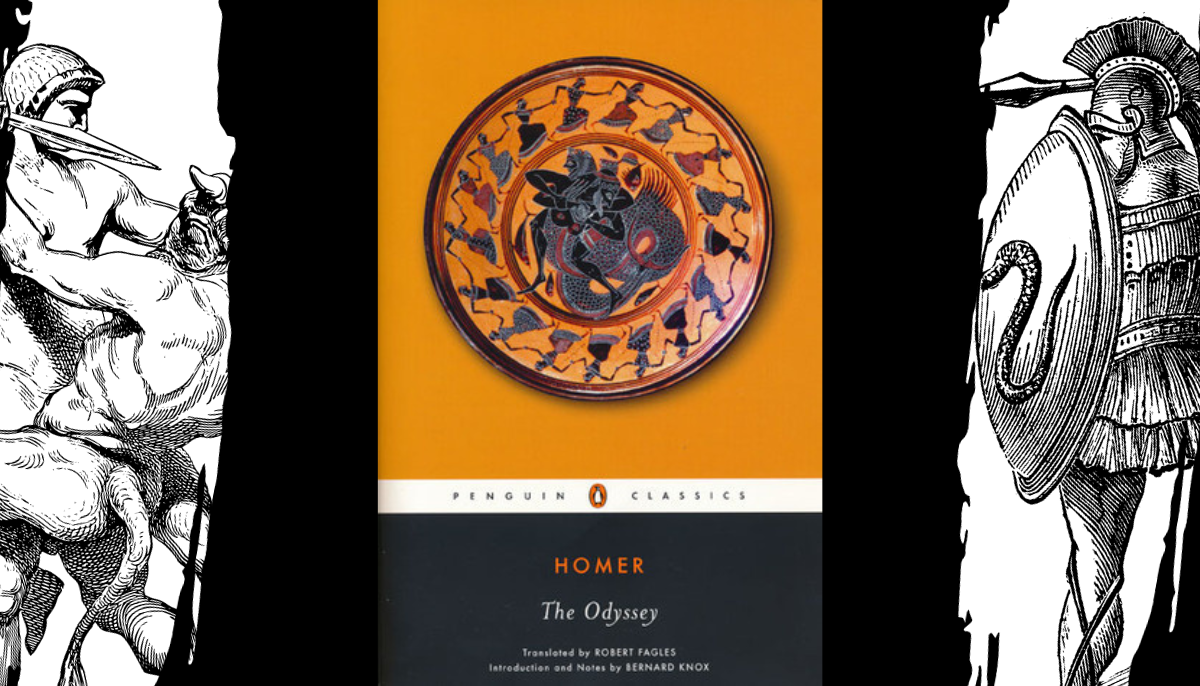
Among the finest gems in Greek mythology’s treasury lies Homer’s Odyssey, an epic that beckons readers into a realm of heroic odyssey and yearning.
This legendary saga follows the trials and tribulations of Odysseus as he battles mythical beasts, navigates treacherous waters, and contends with capricious gods on his arduous journey home from the Trojan War.
The Odyssey is appealing to adults because it explores the human condition. Themes of resilience, cunning, and the complexity of human relationships intertwine with the divine, offering insights into mortality and the essence of being.
The narrative, enriched by its portrayal of a hero’s intricate psychology, captivates readers by delving into the complexities of identity, loyalty, and the interplay between fate and free will.
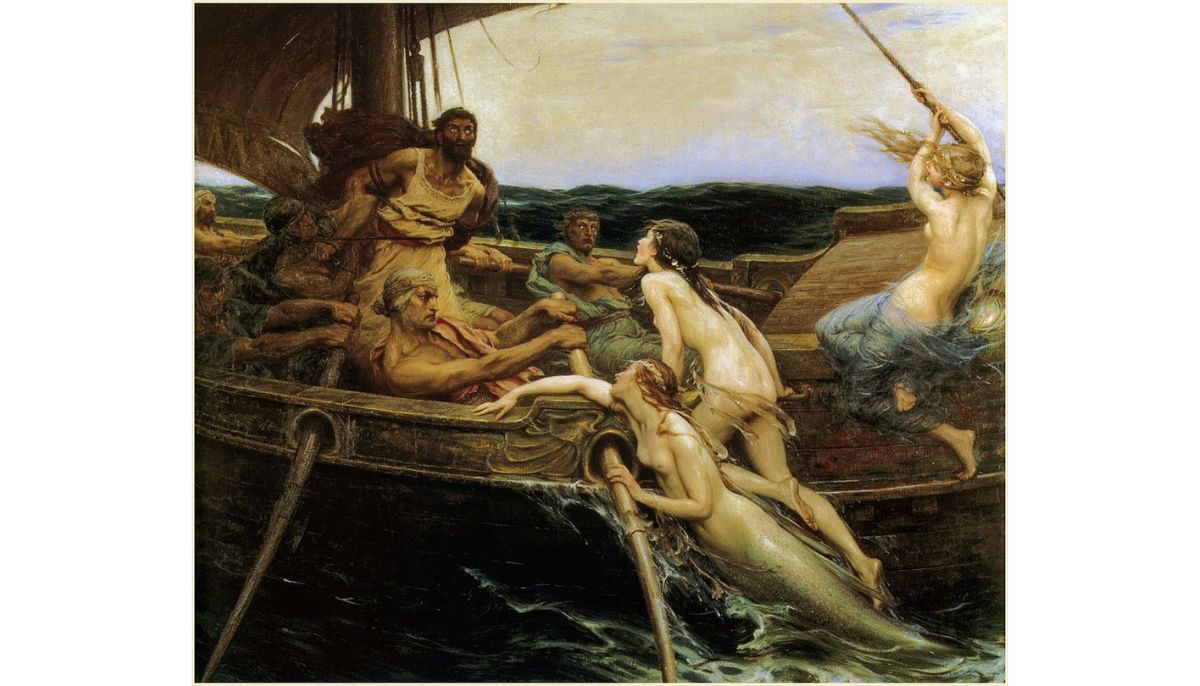
While the Odyssey boasts profound themes, it is surprisingly accessible for adult readers. Homer’s vivid imagery and rhythmic poetry infuse life into the narrative, immersing readers in the adventure.
While the language may carry the gravitas of an epic, its pacing and narrative structure invite readers to delve deep without becoming overly dense or daunting. As an exploration of the mythical and the human, the Odyssey is an enduring testament to the timeless allure of epic storytelling.
Theogony, Hesiod
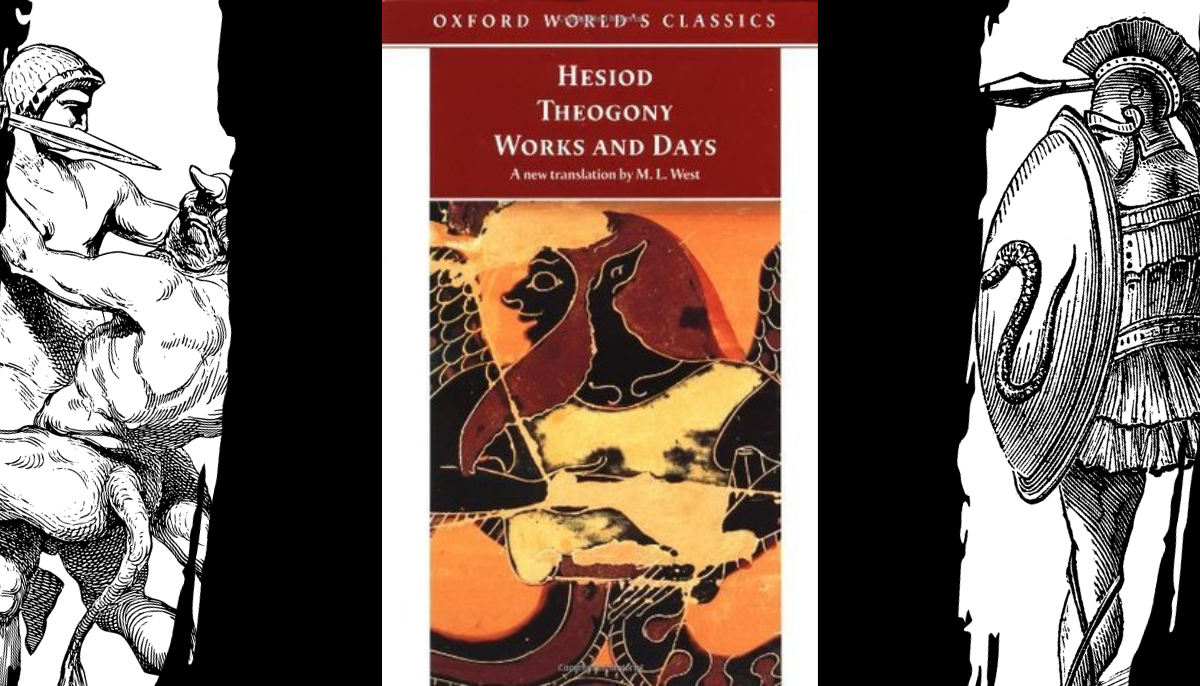
“Theogony” by Hesiod is a foundational work in Greek literature, offering an extensive genealogy of Greek gods from the dawn of the world. This poem, comprising 1022 verses, is divided into distinct sections, focusing on different generations of gods, their conflicts, and the eventual establishment of Zeus’s supremacy.
This work is crucial as it provides a systematic and detailed account of Greek mythology, laying the foundation for much of Western literature’s mythological references. For modern readers, Theogony is an essential source for understanding classical myths, including those of Prometheus, Pandora, and the Golden Age. However, the extensive genealogical listings of deities can be challenging, occasionally causing the narrative to feel dry and dense.
Hesiod navigates through various mythological episodes, including the castration of Uranus by Chronos, the Titanomachy (battle between the Olympian gods and Titans), and the Typhonomachy (battle against Typhon). The poem culminates in the reign of Zeus. The portrayal of the Prometheus myth, illustrating Zeus’s punishment for Prometheus’s defiance, highlights themes of rebellion and divine retribution.
Works and Days, Hesiod
“Works and Days” shifts from the mythological to the practical, blending autobiographical elements with moral and practical advice. Hesiod addresses this poem to his brother Perses, offering guidance on honest living and farming practices.
While less famous than Theogony, this work is invaluable for its insights into archaic Greek society’s daily life and ethics. It presents a unique perspective on ancient Greek farmers’ lives, contrasting with the heroics and nobility often depicted in other contemporary works like Homer’s epics. However, modern readers might find the agricultural advice and moral admonishments less engaging.
The poem includes mythological narratives like the creation of Pandora and the races of men intertwined with practical advice on farming and living a virtuous life. Hesiod’s views on women, consistent with Theogony, can be challenging for contemporary readers, reflecting the gender norms of his time.
Both “Theogony” and “Works and Days” are seminal texts for anyone interested in ancient Greek culture and mythology. They offer a comprehensive and intriguing look into the Greek worldview, though their appeal might vary based on individual interest in mythology, history, and practical wisdom of the ancient world.
These works are indispensable for those fascinated by Greek myths or ancient societal norms, though their dense and sometimes dry nature might not cater to all modern readers.
The Oresteia, Aeschylus
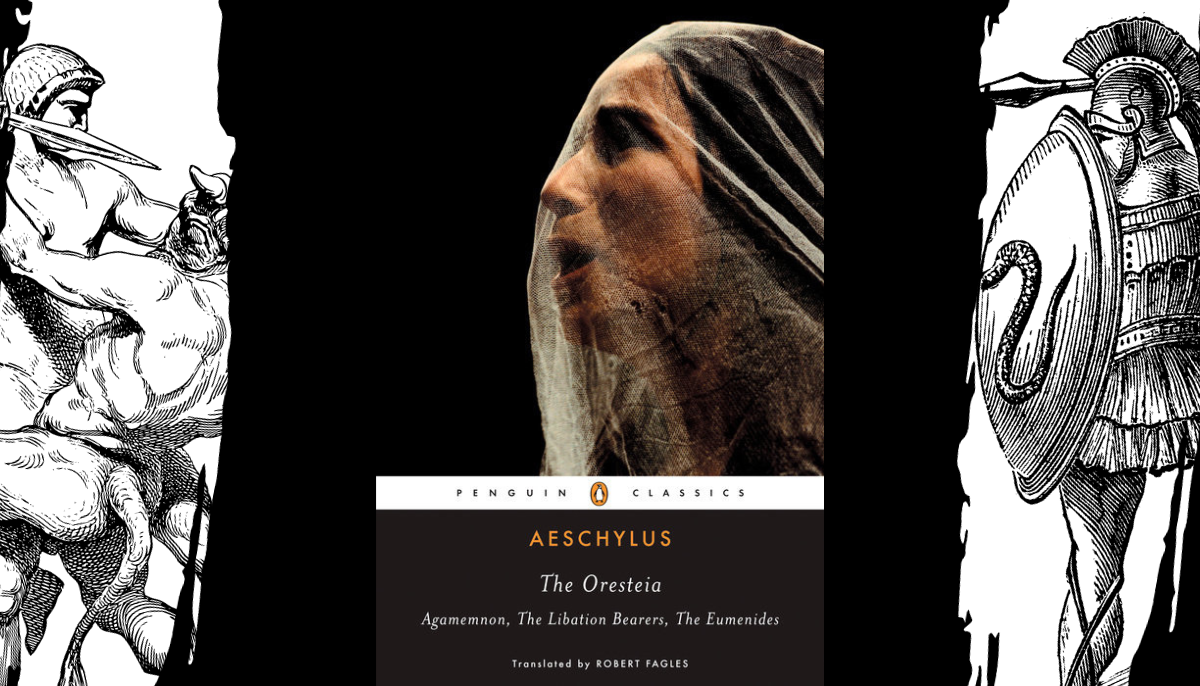
The Oresteia by Aeschylus, the only complete trilogy of Greek tragedies surviving to this day, is a profound narrative that delves into themes of justice, morality, and power dynamics. Comprising three plays – “Agamemnon,” “The Libation Bearers,” and “The Eumenides,” the trilogy explores the harrowing cycle of violence within the house of Atreus, manifesting the adage that violence begets violence.
Aeschylus, a pioneer in Greek drama, is known for his dramatic works and his participation in significant historical events like the Battle of Marathon. His gravestone, interestingly, commemorates his military courage rather than his literary legacy.
The Oresteia is more than a tragic narrative; it reflects the human condition and societal transformation. The trilogy’s portrayal of the transition from a cycle of vengeance to a system of justice overseen by a court symbolizes the evolution from personal retribution to a structured legal system.
Themes and Plot
- Agamemnon: The first play focuses on King Agamemnon’s moral dilemma and subsequent sacrifice of his daughter Iphigenia, sparking a chain of retributive violence. His murder by his wife, Clytemnestra, sets the stage for the ensuing drama.
- The Libation Bearers: Orestes, the son of Agamemnon and Clytemnestra, driven by the societal obligation to avenge his father’s death, murders his mother. This act highlights the ongoing cycle of vengeance.
- The Eumenides: The final play centers around the trial of Orestes, where the old and new orders, represented by the Furies and Apollo/Athena, respectively, clash. The resolution, with Athena’s casting vote, signifies a shift towards a more civilized form of justice.
The Oresteia, while steeped in themes of murder and revenge, transcends these to explore deeper societal and familial dynamics. The trilogy is lauded for its intricate portrayal of the balance of power, gender dynamics, and the importance of honoring familial bonds.
The translation of the plays plays a significant role in their accessibility and enjoyment, while the underlying beauty of the tragedy and the stark themes make it a compelling read.
Prometheus Bound, Aeschylus
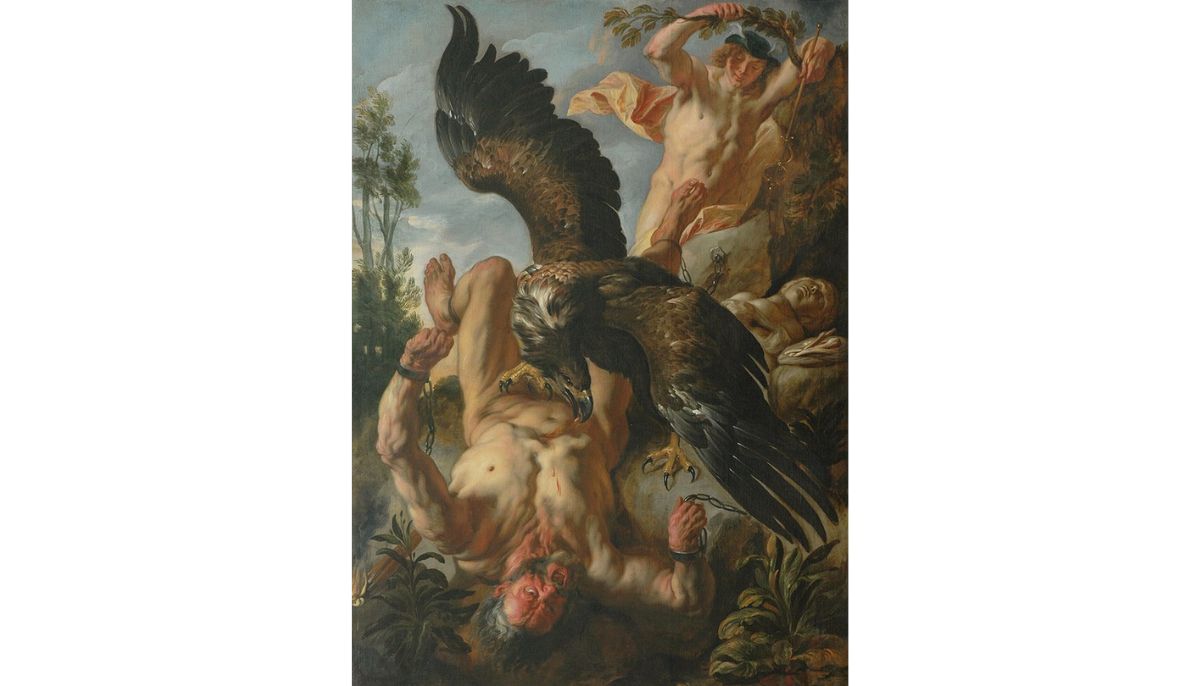
“Prometheus Bound,” a captivating drama from Greek mythology, beckons adults to explore the fiery realm of defiance and divine retribution, in this zesty narrative attributed to Aeschylus, the daring Titan, Prometheus gifts humanity with fire and wisdom, earning the wrath of the mighty Zeus.
Its sizzle of power dynamics and moral dilemmas fuels the allure of Prometheus Bound for adult readers. The clash between Prometheus and Zeus creates tension, igniting reflections on rebellion, autonomy, and cosmic consequences. Through Prometheus’s fiery suffering, readers confront the eternal struggle for justice in a world where the divine and the mortal collide.
While it’s a witty and brisk read, it delves into Prometheus’s anguish while sparking discussions about suffering, knowledge, and the audacity of the human spirit. In this short but impactful drama, Prometheus Bound offers a blazing exploration of defiance’s cost and the unyielding quest for enlightenment against all odds.
The Oedipus cycle, the Theban plays, Sophocles
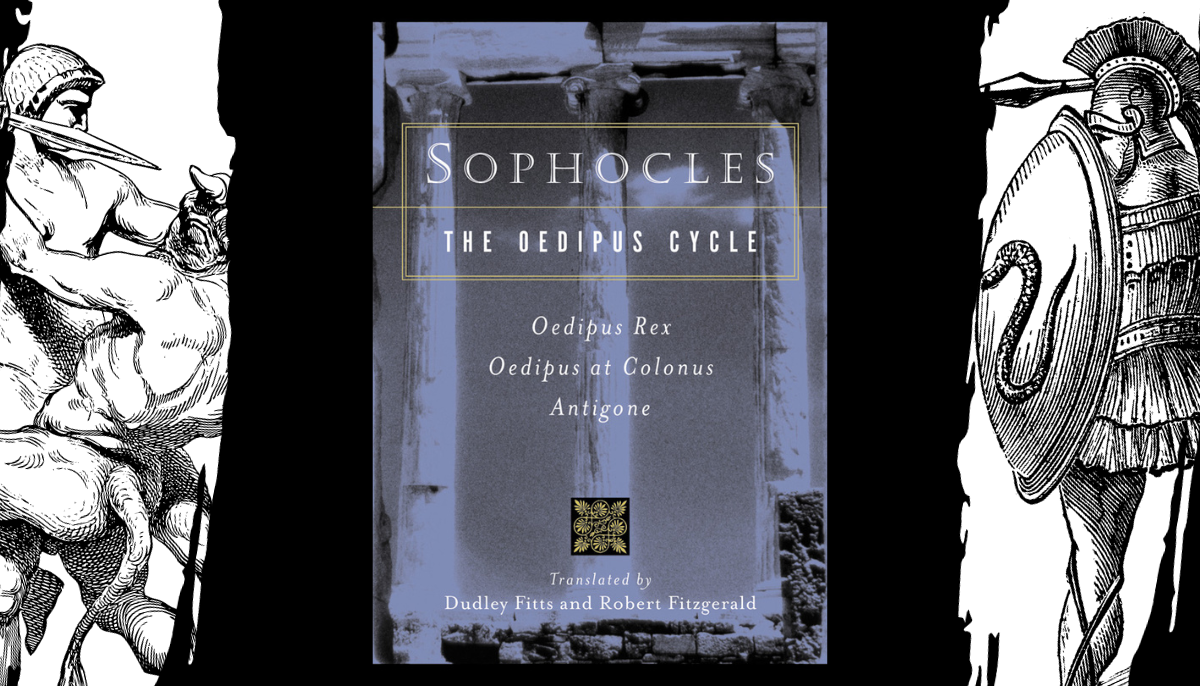
Sophocles’ Theban Plays, a trilogy comprising “Antigone,” “Oedipus the King,” and “Oedipus at Colonus,” stand as a monumental testament to the power of Greek drama. These plays, each a masterpiece in its own right, weave a complex narrative that delves deep into themes of fate, morality, and the consequences of human actions.
Born in 497/6 BCE, Sophocles emerged as a luminary in Greek theatre, celebrated for his profound character development, emotional depth, and philosophical prowess.
Antigone: A Tale of Defiance and Moral Ambiguity
Antigone is a striking drama that pits personal morality against the edicts of the state. The play centers around Antigone’s moral defiance against King Creon’s decree, underscoring the eternal struggle between individual convictions and societal laws. Sophocles masterfully explores themes of duty, justice, and the complex interplay of divine and human laws.
Oedipus the King: The Inescapability of Fate
In Oedipus the King, Sophocles presents the tragic irony of human blindness and the unyielding march of destiny. In his relentless pursuit of the truth, Oedipus unravels the dark secrets of his own life, embodying the tragic hero who is helpless against fate. This play brilliantly captures the essence of Greek tragedy, where every attempt to evade destiny only leads one closer to it.
Oedipus at Colonus: A Journey Toward Redemption
The trilogy concludes with Oedipus at Colonus, a poignant exploration of redemption and acceptance. The aged and blind Oedipus, seeking sanctuary in his final days, finds a measure of peace in Colonus. Sophocles weaves a narrative that contemplates destiny, divine intervention, and the human condition’s enduring questions.
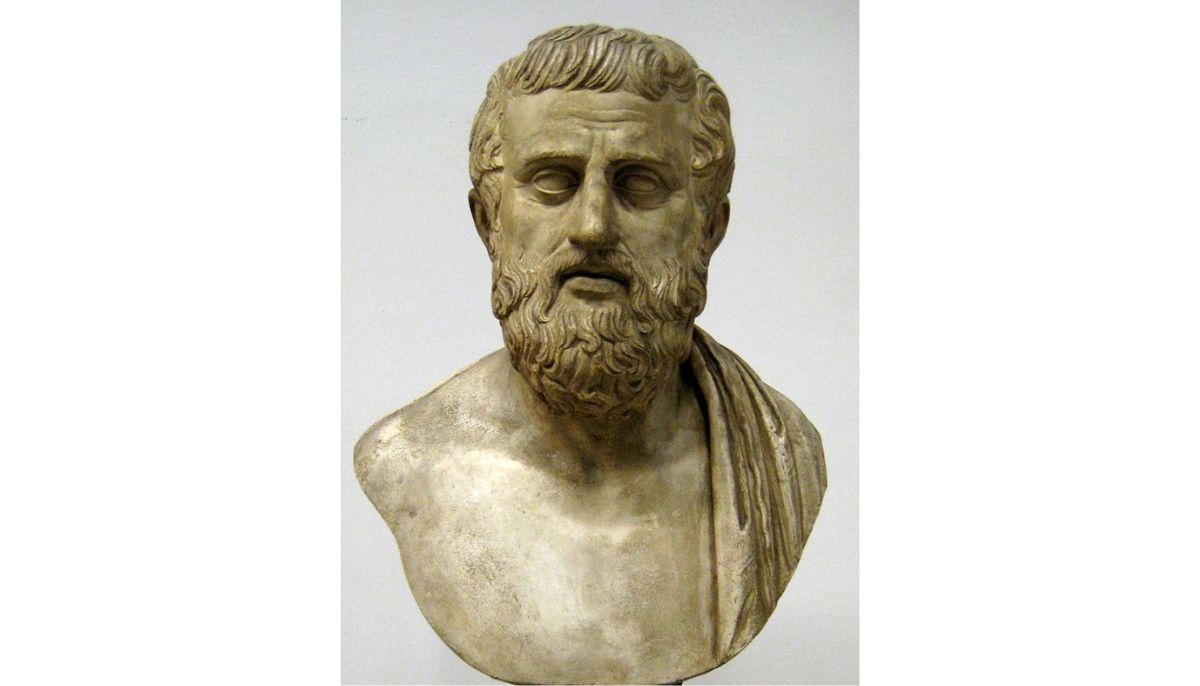
The Theban Plays are not only a cornerstone of ancient drama but also remarkably accessible to modern readers. The universal themes of justice, power, familial loyalty, and human resilience resonate across ages, making these plays engaging and relatable.
The narrative structure, characterized by Aristotle’s principles of tragedy, including reversal, recognition, and suffering, ensures that the stories remain compelling and emotionally impactful.
The plays’ cathartic moments, delivered through a combination of stark realizations and dramatic reversals, ensure a profoundly moving experience for the audience.
Metamorphoses, Ovid
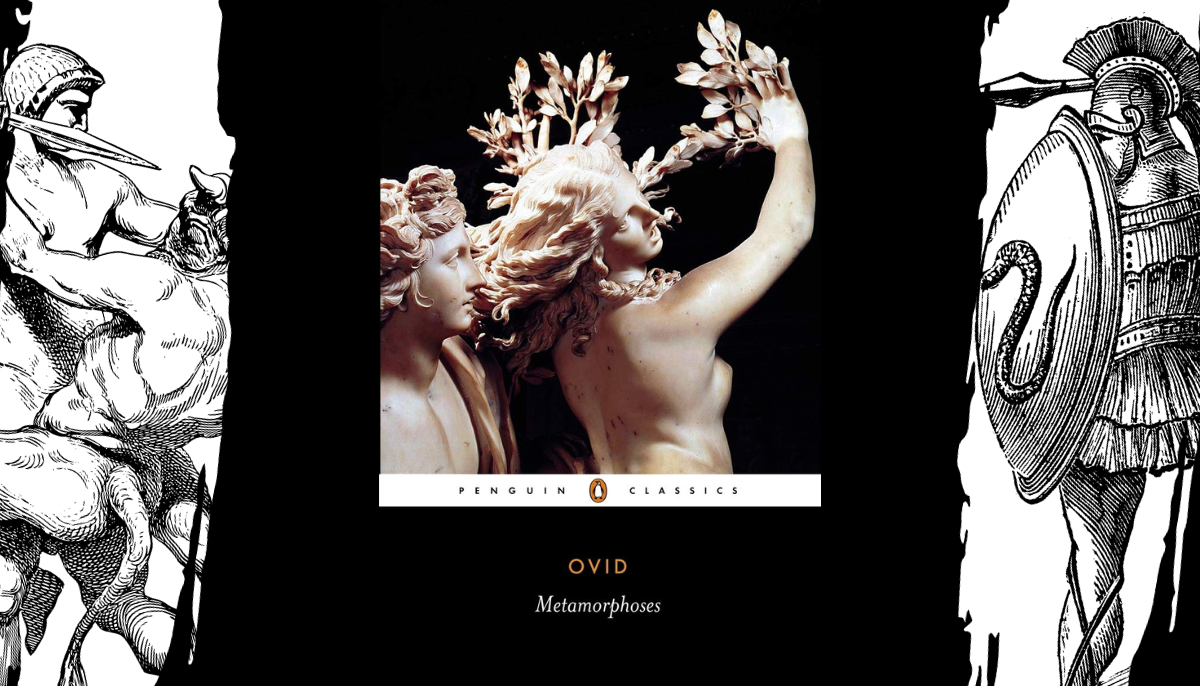
Ovid’s “Metamorphoses” stands as a monumental work in classical literature, brilliantly intertwining a myriad of mythological tales with the central theme of transformation.
Written in Latin during Roman times, this epic poem masterfully covers a wide range of Greek myths, infusing them with Roman perspectives and cultural nuances.
Ovid weaves together stories characterized by change—often spurred by love or lust—where characters undergo magical transformations into new beings.
His narrative spans from the world’s creation to Julius Caesar’s death, seamlessly blending well-known myths like Daedalus and Icarus, Pyramus and Thisbe, and the fall of Troy with Roman ideals.
Ovid’s work is remarkably vivid and engaging, making it not just a scholarly text but also a source of pure pleasure. The stories are so dynamically portrayed that they captivate readers, allowing them to delve into more profound philosophical and existential questions as a bonus to the enthralling narratives.
One of the unique aspects of Metamorphoses is its structure, which allows readers to dive in at any point or to seek out specific myths of interest. It resembles an all-encompassing buffet of mythological narratives, offering something for everyone. Once a reader gets a taste, they are often compelled to explore the entire collection.
Metamorphoses is a must-read masterpiece that transcends its historical context, offering timeless stories of transformation, love, and the human imagination. Its blend of Greek myths with a Roman perspective, combined with Ovid’s storytelling prowess, makes it a captivating read for anyone interested in mythology, literature, or the enduring power of stories.
